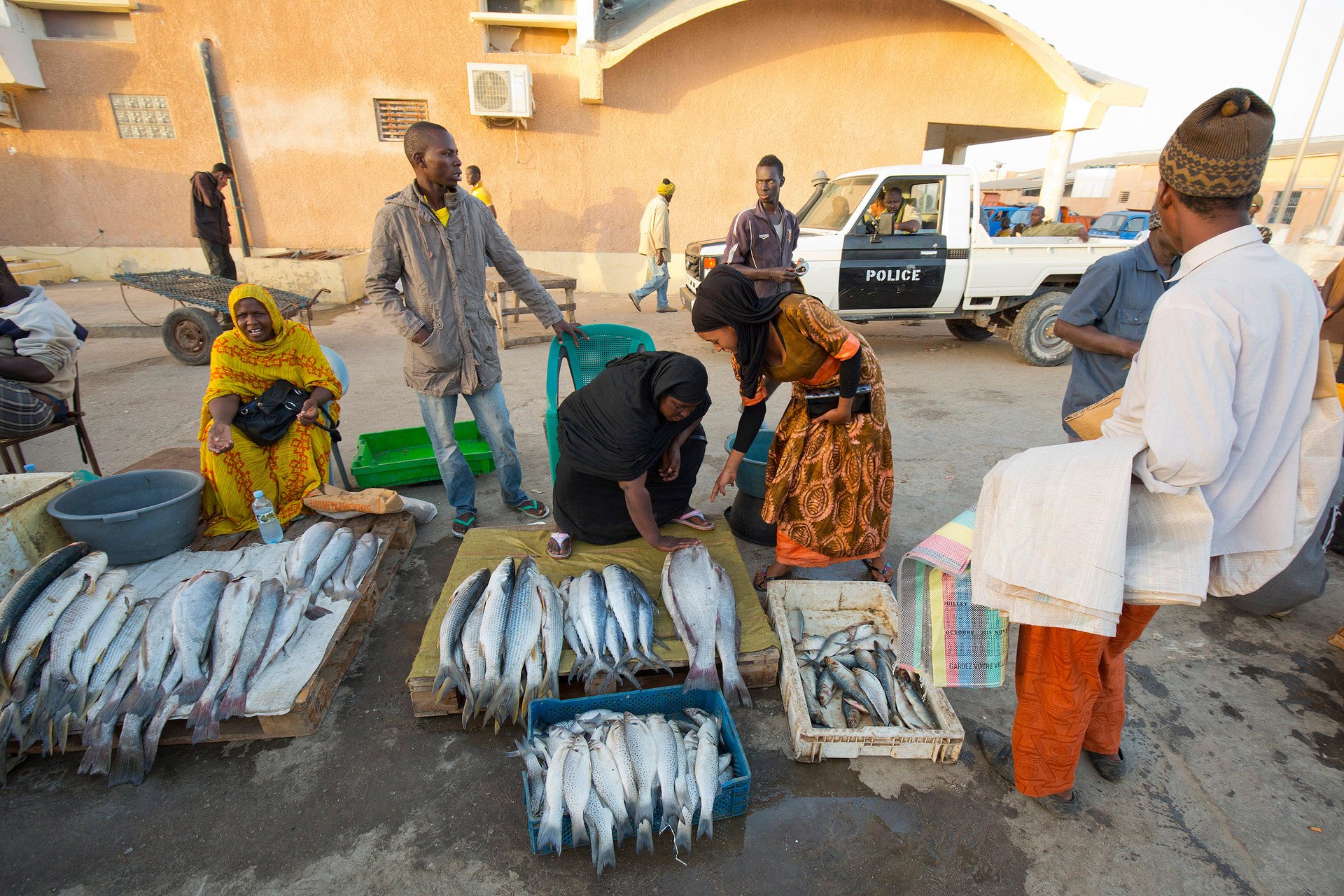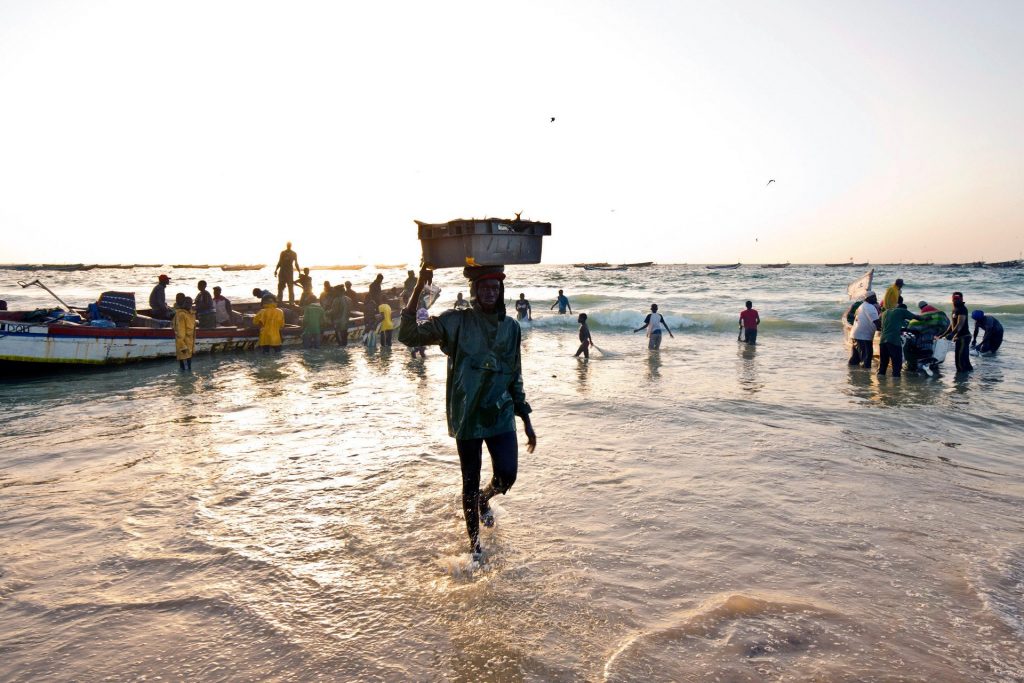The EU has renewed a four-year fishing agreement with Mauritania that will allow more than 100 EU vessels into Mauritania’s waters in return for funding that will support local fishing communities. But the deal has its critics.
The agreement, which has just been greenlit by the European parliament, is an avenue for member states to help meet a burgeoning demand for fish that the bloc is unable to satisfy. Since 2009, EU fish imports have risen by 6% each year. In 2014 alone, the bloc imported €21bn (£16bn) – quadruple that of meat imports.
The agreement, which dates back to 1987, is considered crucial because it is the most comprehensive the EU has had with any African country. It forms part of a series of sustainable fisheries partnership agreements that give EU vessels access to a third country’s fishing waters.
The new deal will come under the EU’s common fisheries policy, which has committed the bloc to more sustainable fishing, in stark contrast to the overfishing of the African coast that was undertaken in the past.
The agreement now allows EU vessels to catch shrimp, tuna, demersal fish and pelagic fish totalling up to about 280,000 tonnes each year. The EU will pay for the catches and commit €59m every year to the partnership, with €4m supporting the fishing communities in the west African country including environmental sustainability, job creation, and tackling illegal and unregulated fishing.
The bilateral agreement is unique because, unlike others that are predominantly hinged on fishing tuna, it covers a wide range of stocks. The EU vessels covered under this arrangement come from Italy, Portugal, Spain, Greece, Germany, Ireland, France and Latvia.
According to parliament, the agreement with Mauritania should serve as a model of transparency and enforcement.
Mauritania has a fisheries and transparency initiative which is anchored on transparency and participation in an attempt to end secretive contracts that aid overfishing. It has sought to enlist the support of businesses and civil society in embracing responsible fisheries management. Such an initiative has been hailed by the industry as a major milestone in taming overfishing, which costs west African countries up to €1.1bn in depleted stocks every year.
But the fishing deal has received growing criticism from researchers and environmentalists who have accused the EU of exporting its problem of overexploitation to African waters.
While the bloc has tried to save face by, for example, introducing the fisheries partnership agreement, which seeks to abolish purely commercial deals and instead introduce mechanisms that encompass fishing communities in decision-making, little has changed, according to its critics.

Photograph: Alamy Stock Photo
The argument is that although Mauritania has received more than €1bn in return for EU fishing rights for the past 25 years, there is little to show how the money is benefiting local fishing communities or improving the country’s fishing sector. Trawlers are almost obsolete and even the marked growth in traditional fishing techniques has been without government participation.
Greenpeace says the EU’s presence is unsustainable and a hindrance to Africa developing its own robust fishing sector.
“The impact on local communities is huge. With less and less fish, local fishermen are forced to make dangerous journeys further away, some simply give up and move away. Trawlers trash traditional fishing gears, which the locals can’t afford to replace. Whilst nominal deals may have been done with governments, it is local communities and Africa’s seas that pay the price,” said the organisation in a 2012 report.
“When fishing represents the main source of protein, and a major source of livelihoods, it really matters how much we are stealing from Africa’s waters. And with increased danger from collisions with trawlers, some west African fishermen end up paying with their lives,” it warned.
Local fishermen are forced to compete with the EU’s industrial trawlers for catches. The Greenpeace report says that a European trawler can capture up to 250 tonnes of fish a day, which would take 56 traditional African boats a year to net.

